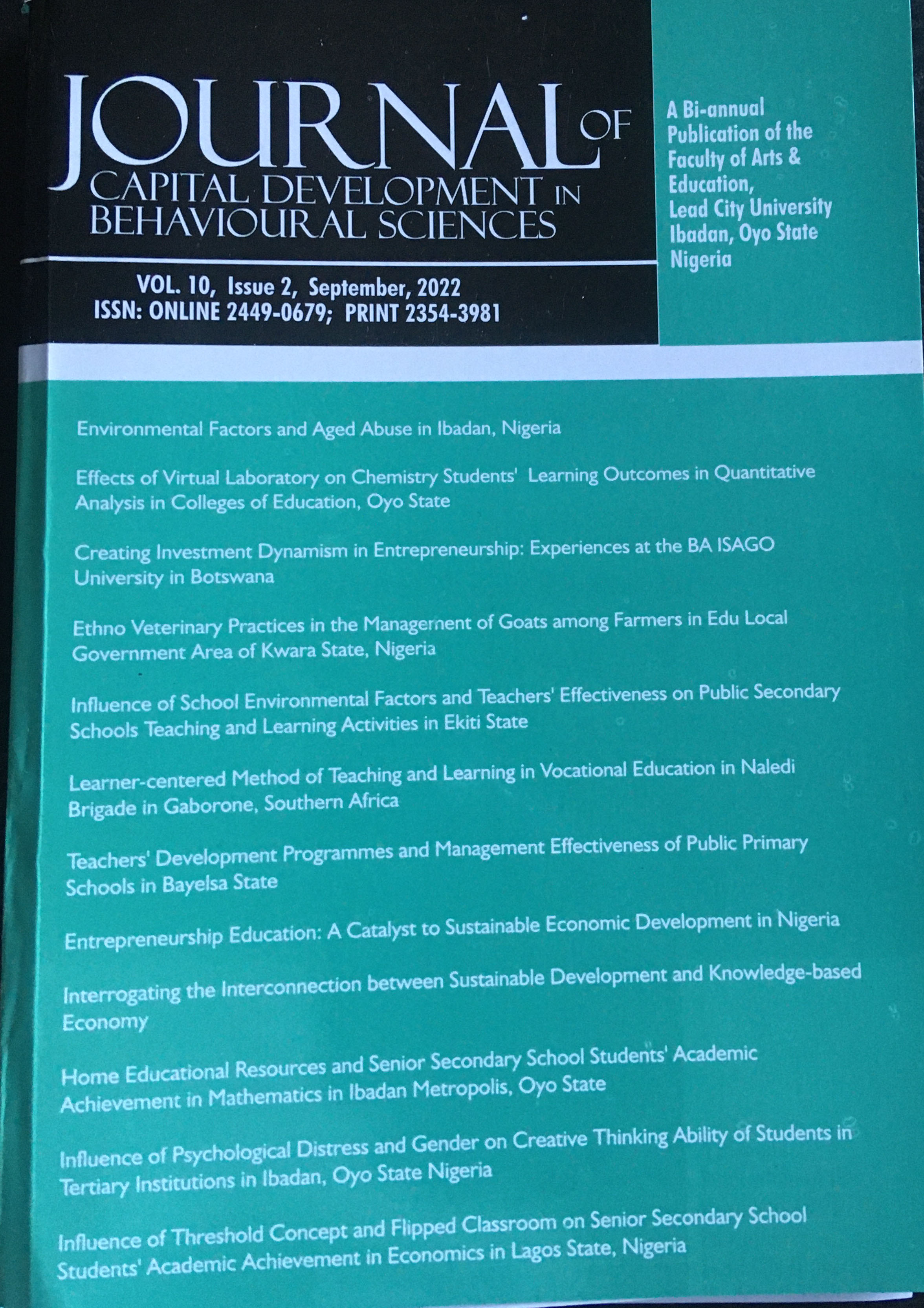Teachers’ Development Programmes and Management Effectiveness of Public Primary Schools in Bayelsa State
Keywords:
Impact, Teachers, Development, Management Effectiveness.Abstract
The study investigates the impact level of staff development by the Teacher Registration and Certification Board (TTRCB) on the effective management of public primary schools in Bayelsa State. Four research questions and two hypotheses were formulated for the purpose of the study. A descriptive survey research design was adopted for the study. The purposive sampling technique was used to select 34% of the total population of 356 public primary school teachers who had been re-trained by TTRCB between 2018 and 2022. Two self-designed instruments by the researchers which were validated and pilot tested were used to collect relevant data for the study. The first instrument was titled: Impact level of Teacher Development Programme on School Effectiveness Questionnaire
(ILTDPSEQ). It was designed on a four-point scale of very high (VH), High (H), Low (L) and Very Low (VL) to elicit responses from the samples teachers. The second instrument titled: Level of Re – trained Teachers Job Performance Questionnaire (LRTJPQ) was used to collect data from school heads. It was a four-point Likert scale instrument. The reliability score values of the two instruments were 0.72 and 0.80 respectively. The collected data were analysed using mean, standard deviation, percentage and Pearson Product Moment Correlation Coefficient statistics. Findings of the study showed that the training teachers had under the TTRCB staff development programme has significant impact on teachers in the effective management of public primary secondary schools; it was also
found that teachers encountered some challenges during training programme which could compromise the expected level of impact of staff continuous professional development on their effectiveness in the management of schools in Bayelsa State. It was therefore recommended that the state government should increase her financial allocation to TTRCB while efforts should be made to approach international bodies and multinational oil companies for financial support. It was also recommended that the timing of the teachers development programme by TTRCB should be during holidays so that pupil’s academic activities will not be disrupted amongst others.

